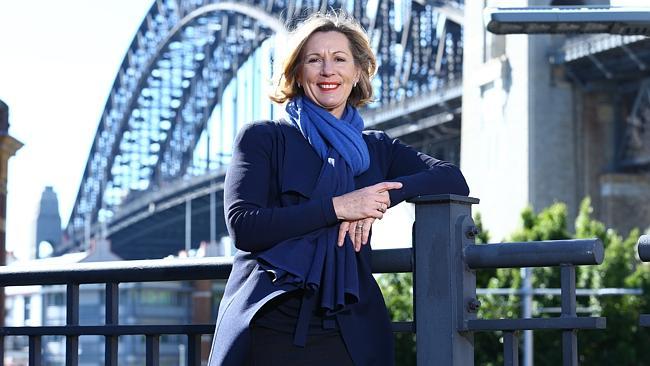Southeast Asian business leaders can use our help with management
Southeast Asia is booming but its business leaders need modern management training.

Southeast Asian leadership styles differ vastly, Stephenson Mansell Group co-founder Virginia Mansell says, and Australian companies are ideally placed to help countries including Singapore, Hong Kong, China and Thailand adapt to changing economies.
Stephenson Mansell, which has specialised in leadership development for almost 20 years, will expand across Southeast Asia to help businesses embrace cultural change, improve relationships with international partners and teach executives the importance of emotional intelligence.
Mansell says that while the region is adapting to change, some countries are slower to embrace it because management styles differ across organisations.
“The biggest challenge is the speed of change and just being able to adapt and become flexible and agile at every level,” she says.
“We can see big structures and organisations who have to collaborate with smaller network partners (are succeeding), some are setting up innovation labs to be ahead of the game, but the big threat is anticipating what’s coming towards us and for leaders to look ahead and take firm decisions and have a risk appetite, which is difficult. It requires strong leadership and support systems for staff to become more resilient.”
Mansell says many Asian countries are well placed to adapt to a tech-focused economy but need guidance at a company level.
Strong and effective communication is critical, she says, particularly when it comes to retaining talent, working with colleagues and setting company direction.
But it can be difficult to open dialogues, as many Asian leaders do not speak as freely as Australians with their staff.
“They tend to not say what they’re thinking, so we don’t know what they’re thinking, but in our culture it’s pretty clear most of the time,” she says.
Mansell has been working with Singtel Optus but has had to adapt SMG’s Australian program to the Singapore telecommunications giant because its leaders operate differently.
“We had to peel it back one or two layers,” she says. “They’re loving the learning but there are basic insights which have been lacking, such as teaching them ‘this is how you listen’, ‘this is how you ask questions’, ‘this is the feeling of being listened to’. “They really value input and experience and anything that’s credentialled.”
A recent Roffey Park study, Working in Asia, surveyed 1400 managers across Singapore, Hong Kong and China, and found at least a quarter of respondents described their leaders as ineffective at connecting on a personal level.
In Singapore, 28 per cent of respondents rated their leaders as ineffective in giving praise and recognition for work done, 31 per cent found them ineffective at setting clear expectations, and 28 per cent found them ineffective at treating people fairly. The figures were worse in Hong Kong and similar in China.
The report listed managing change as the biggest challenge among 1900 leaders and managers, with 42 per cent concerned in China, 35 per cent in Singapore and 34 per cent in Hong Kong.
In Singapore, 31 per cent of employees identified a gap in improving engagement, compared with 35 per cent in Hong Kong and 25 per cent in China.
A recent World Economic Forum review ranked Australia 18th out of 130 countries on effective workforce management. With concerns management skills are lagging in parts of Asia, Australia is well-placed to step in.
Australia was among 19 countries the forum found to use 80 per cent of its human capital effectively but trailed Finland, Norway, Sweden, Switzerland, Denmark, The Netherlands, Belgium, New Zealand and Japan.
To facilitate SMG’s move north the company established the Centre for Integral Leadership Asia, working with the Centre for Coaching at the Graduate School of Business at the University of Cape Town.
The Centre for Coaching has created a range of leadership development services SMG is implementing to ensure consistency across Africa, Europe and Asia.
Mansell says international training programs with a consistent message carry weight in Asia, where more people are studying MBAs and upskilling.
Although postgraduate qualifications help advance careers, they often fail to include people skills, and Mansell says training at a personal level can be beneficial.
“We know it will take time but that’s why we’re going through partnerships. We see a lot of positive responses but we have to be patient, and cultural change is hard anywhere.”
CIL managing director Swee Heng says that in the past Asian countries have achieved higher productivity by focusing on process and efficiency but recently have realised the methodology is unsustainable.
To achieve growth, Singapore has allocated $S500 ($492) to each of its citizens aged over 25 so they can enrol in courses including personal development.
She says Asian-owned companies also can have strong family ties that have not kept up with modern management practices, but a reawakening is seeing young executives refusing to be shackled to old-style practices.
Mansell says Southeast Asian leaders sometimes need to be more aware of emotional intelligence, and the SMG program highlights how they can learn and therefore improve confidence in management from within.
There also has been less focus in the region on retaining staff given the increasing number of graduates looking for white-collar roles. But a high turnover can lead to a decrease in productivity, lower job satisfaction and a lack of confidence in management.
“If you can help key leaders have more insight into themselves and how they impact on others, we believe it can have a wider impact,” she says. “They’re less collaborative to what Australian companies are. We’ve got to be collaborative and engage people because people are not going to stay with bosses who are old style.”


